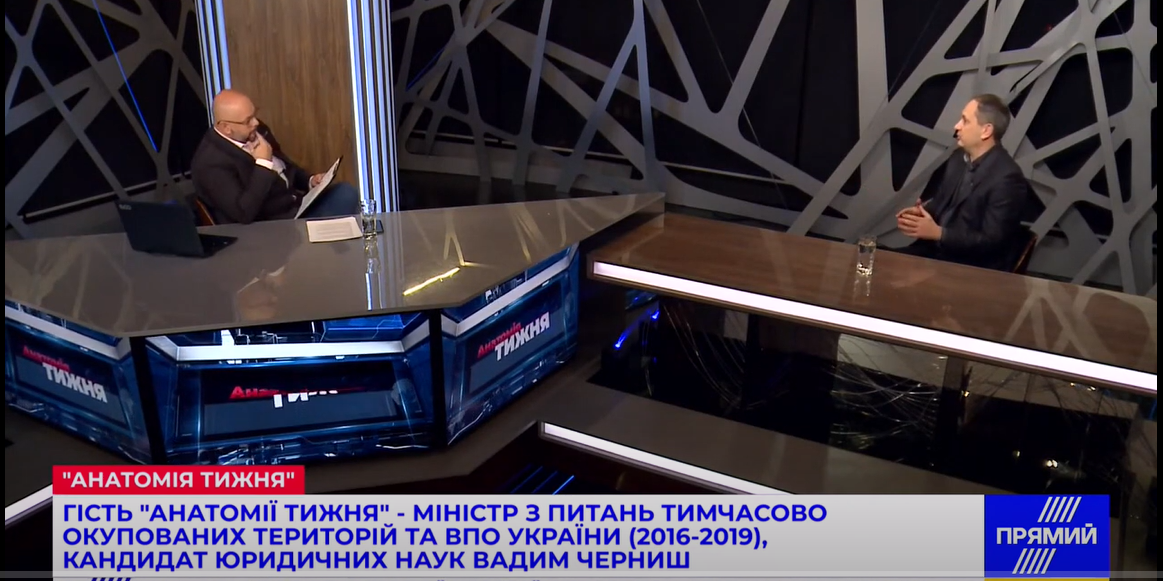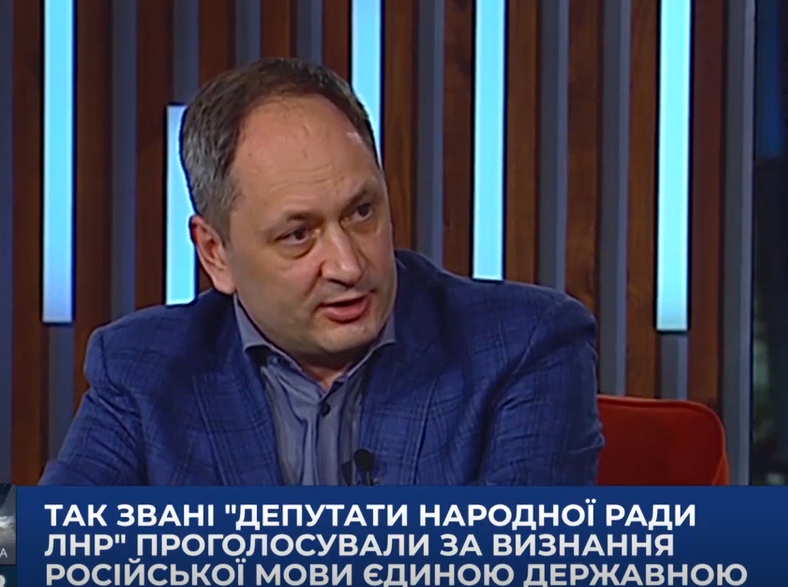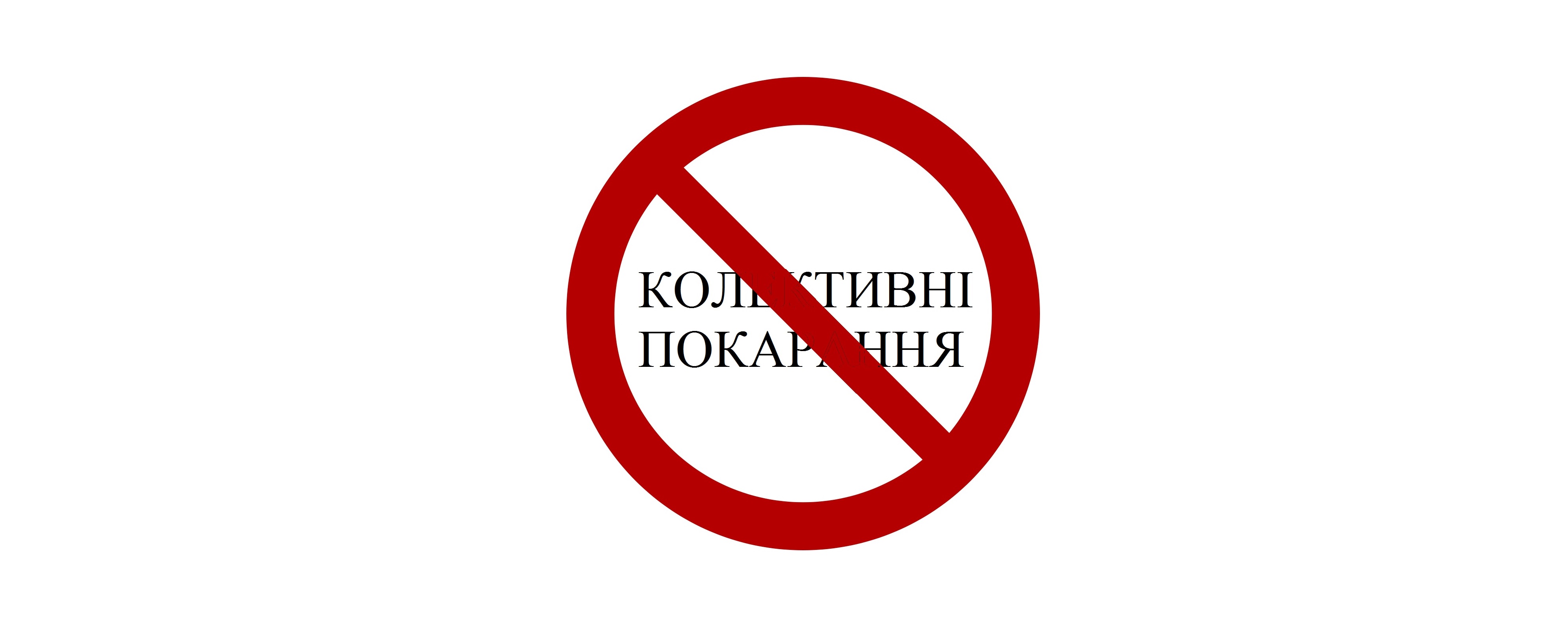«Особливий статус, але з правами автономії або так званої «асимметричної федерації» – сценарій РФ стосовно Донбаса» – Вадим Черниш
Вадим Черниш, міністр з питань тимчасово окупованих територій 2016-2019 років у програмі Євгенія Кисельова «Реальна політика» дав оцінки динаміці Мінського переговорного процесу та розповів про втрачений потенціал України як ядерної держави:
Так называемая политическая часть «Минска» для Росси есть главная. По моему мнению, сценарий очень прост. Особый статус, но с правами автономии либо так называемой «асимметричной федерации». То есть прекращаем огонь, разводим войска, кстати, в Минских соглашениях, в самом Комплексе мер, о разведении войск нет ничего, там есть о разведении средств. Разводим войска, устанавливаем совместный механизм контроля – хорошо, не гибнут наши люди – отлично. Но после этого запускаем свободную экономическую зону, освобождение от налогов (хотя минскими соглашениями предусмотрено, что налоги должны идти Украине, в украинский бюджет) – как говорит Л.Кравчук или глава Луганской ВЦА, сделаем опять товарооборот с «отжатыми» предприятиями, нормализуем экономику – и будет ситуация очень похожая на Приднестровье. Таким образом не будет никакого политического урегулирования, но полная нормализация. Этот сценарий шаг за шагом «продавливается». То есть местные выборы не сами по себе важны, а нужны как начало «особого статуса», хотя Украина говорит об «особом порядке местного самоуправления». Кравчук опять начинает какой-то «особый порядок управления». Управление бывает государственное, а бывает местное. Так это о местном управлении. И кстати, проблемы с национальной безопасностью Украины в Крыму, разделом Черноморского флота и уступками России заложил никто иной, как Леонид Кравчук. И плюс, не оставил нам выбора в обладании ядерным оружием. Также мы потеряли возможность изготовления всех почти компонентов ядерного цикла, как например, у Японии. Ведь Япония не обладает ядерным оружием, но произвести его может. Сейчас такая стратегическая двойственность очень бы помогла Украине.
Еще раз хочу напомнить, что Япония – ядерное государство, которое использует ядерную энергию в мирных целях. Но цикл создания ядерного оружия очень короткий (научный и технологический). И стратегическая двойственность как раз это Израильский пример. Никто не знает, есть в Израиле точно ядерное оружие или нет. Израиль не подтверждает это и не отрицает. Но кроме ядерного оружия, есть и другие виды оружия: гиперзвуковые ракеты, современное вооружение. Когда в 1992 году мы подписали Лиссабонский протокол, Верховная Рада Украины отказалась его ратифицировать, ещё два года она делала оговорки о том, что мы не согласны до тех пор, пока Украине не предоставят четких гарантий и вот потом их предоставили в виде Будапештского меморандума.
На сегодняшний момент, возвращаясь к российской тактике ведения переговоров, она больше наступательная, а наша тактика – это дымовая завеса. И эти дополнительные меры по прекращению огня, Украина ведь на них в апреле отвечала негативно. Нам говорили, что нужен совместный контроль представителей суррогатных республик и Украины. Украина тогда писала свои предложения и говорила – нет, только с российской стороной и только по определённым процедурам. А потом вдруг через два месяца согласилась.
Совместное патрулирование может быть применено и к границам, и такая идея есть у россиян. То есть берут одного представителя наших вооруженных сил или пограничников и одного представителя из местных. И та же самая картинка получается, вот вам и контроль за границей.
Деталі експертної дискусії дивіться за посиланням:
Vadym Chernysh on the issues of Ukrainian language in ORDLO, Russian passports and water supply in Crimea
Strategy of Russia to separate certain occupied areas of Luhansk and Donetsk oblasts (ORDLO) from Ukraine comprises unified state Russian language in ORDLO, no charges to obtain Russian passport and a simplified issue regime of such passports to residents of the occupied territories, and license plates with ORDLO registration. Vadym Chernysh elaborated on the issues on the air of the talk show “Echo Ukrainy” by Matvii Hanapolskyi on the channel “Priamyi”.
How Ukraine should counteract to the issuance of Russian passports on the occupied territories.
“The Russian Federation motivates the issuance of passports by alleged humanitarian needs, which was even outlined in the relevant decree of the President of the Russian Federation on a simplified procedure for the issuance of Russian passports. However, this mechanism is more of a political nature, inter alia, elections, protection, integration into information space, labor force, services. In 2019, when I headed the Ministry of the Temporarily Occupied Territories, we had an initiative on non-recognition of passports issued by the Russian Federation to residents of the occupied territories of Donbas, both domestic and foreign. This was the basic position of Ukraine and by diplomacy we had to work out the appropriate measures for non-recognition of such passports with each country. There was a statement of some Baltic countries that they would agree to such a step, there was a statement by the EU that they would consider this possibility. This issue needs to be developed so that this passport would have no value. From domestic to foreign,” said Vadym Chernysh.
On sanctions for the Russian passports issuing authorities.
“We also proposed to introduce personal sanctions against those who organized the process of issuing passports in the occupied Donbas. In order for these people, who are involved in the passportization of the residents of non-Government controlled territories due to the occupation, should be subject to international sanctions. Among these individuals that we have proposed are the Minister of Internal Affairs of the Russian Federation and officials of the Russian authorities in top-down command structure who are personally responsible for issuing Russian passports, including even those sitting in passport offices in Rostov oblast.”
On Russian passports of the leadership of the so-called republics
“Recent events clearly show that representatives of the Russian occupation administrations have been issued with Russian passports. But let’s remember that Oleksandr Borodai had a passport of a Russian citizen, the so-called Prime Minister of “DPR” is a Russian citizen, also he is the First Deputy Governor of Irkutsk oblast. The Minister of State Security in Luhansk oblast is a staff member of the Federal Security Service. He just works under another name in the occupied part of Luhansk oblast. All this is evidence that all processes in the ORDLO are guided and organized directly from Russia by its citizens.”
On water supply to Crimea.
“There are several things that are not clear to me. For example, one or more deputies from the political party “Servant of the People” come out and say: we may now think about supplying water to the Crimea. And I ask: Who did ask you to do that? There was no official request. No one did. Why did you jump to the conclusion that water is needed there?” asks Vadym Chernysh.
“According to our calculations, there is no need for water for humanitarian needs. Only for technical, economic needs. There is drinking water, that’s enough. There is enough for humanitarian needs. I have another question: What water is used now? From the Ukrainian captured subsoil! And whose gas do they use? From the Black Sea coast. For example, in Northern Cyprus, Turkey (which once made a military invasion there) a pipeline under water was built. In general, now the occupation authorities in Crimea use a lot of water instead of providing the population with drinking water for the needs of the chemical industry, for chemical production, which are harmful for the most Crimeans, there is an irrational use of water resources.”
On the Strategy for the return of Donbas and Crimea.
I have heard that the Strategy has to be developed by the end of the year. An official document shall be approved, where we could see this Strategy, however it is still missing. I emphasize that according to the legislation, the National Security Strategy had to be adopted as early as November 2019, and it is still missing, although it is a basic document. That is as I cannot understand how three strategies for National Security, on the return of Crimea and Donbas can exist separately from each other.
See the full version of the conversation here:
Заборона колективних покарань
«Моя справа – сказати правду,
а не змушувати вірити в неї»
Жан-Жак Руссо





